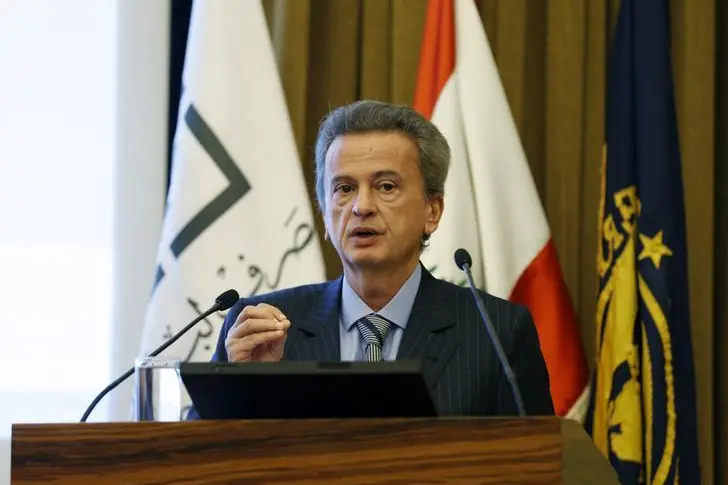PHOTO
BEIRUT - Lebanese Deputy Prime Minister Saadeh al-Shami called on Thursday for Central Bank Governor Riad Salameh to resign following France’s issuing of an arrest warrant against him as part of a fraud investigation.
Salameh, his brother Raja and his assistant Marianne Hoayek are being investigated in Lebanon and at least five European countries on suspicion they may have taken more than $300 million from the central bank.
"In any country when someone is accused of such crimes, they should not remain in a position of responsibility and should recuse themselves immediately," Shami told Reuters.
"I think he should resign."
Salameh, who along with his brother denies any wrongdoing, told Saudi-owned Al-Hadath TV on Thursday that he will step down if any court ruling goes against him.
He plans to appeal against the French warrant, which he told Al-Hadath violated principles of a Lebanese-French agreement without giving more details. "The judicial pathway is unfair, but I am ready for it," he said.
A Lebanese judge overseeing a local case against Salameh has rejected his lawyers' defence arguments, clearing the way for a June 15 hearing, a senior judicial source told Reuters.
Critics had doubted the judiciary, where appointments largely depend on political support, would seriously investigate a figure of Salameh's stature given his political connections.
The Salameh brothers and Hoayek have been charged with fraud and embezzlement in two separate cases in Lebanon. Hoayek and her lawyer have not been reachable for comment.
The judicial source told Reuters a new hearing date for Raja Salameh had also been set for June 15.
French prosecutors' warrant for Riad Salameh, issued on Tuesday, was the first from any of the foreign probes into him.
Though some of his support bases in Lebanon and abroad are starting to fray, Salameh wants to end his 30-year tenure as bank head when his latest term expires in July.
His departure would mark a milestone in the financial meltdown resulting from decades of profligate spending, corruption and unsustainable policies by Lebanon's leaders.
(Reporting by Laila Bassam; additional reporting by Nayera Abdallah and Jana Choukeir in Dubai, Writing by Maya Gebeily; Editing by Hugh Lawson and Andrew Cawthorne)



















